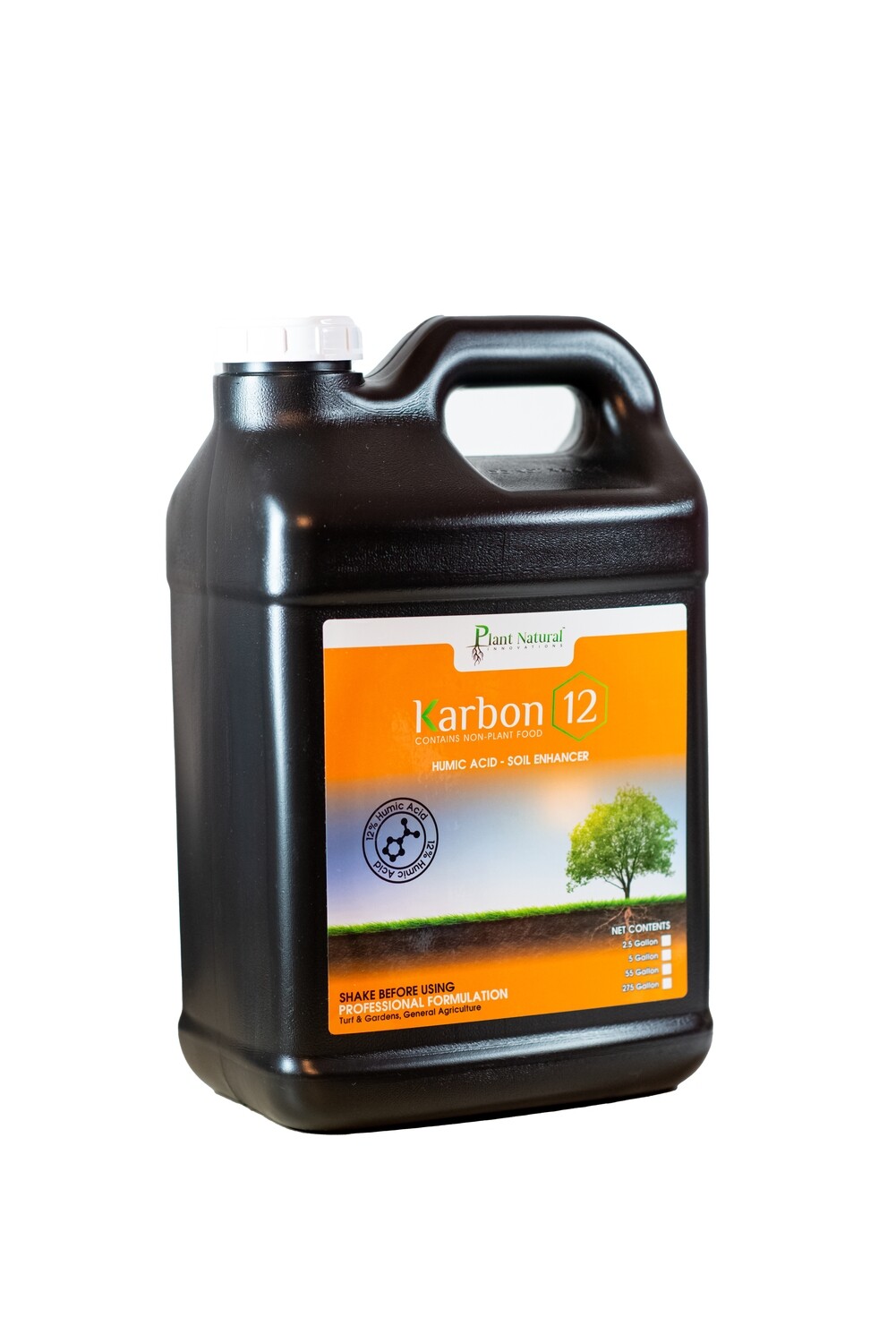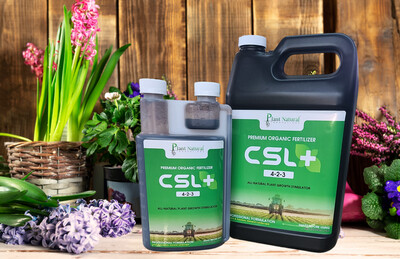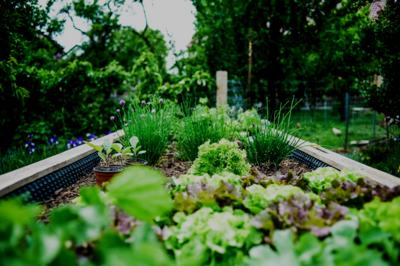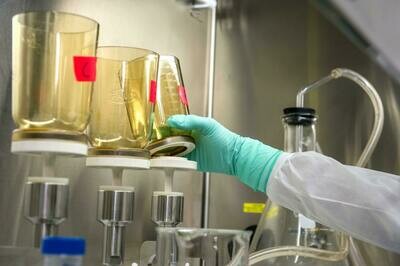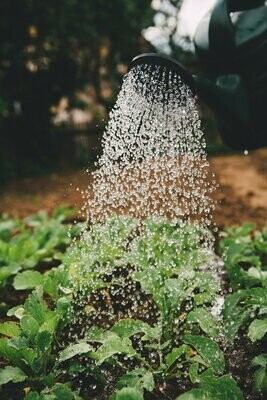Karbon-12 / 2.5 Gallon
Karbon-12: Premium Soluble Humic Acid Formula
Karbon-12 is a premium soluble humic acid derived from peat and plant-based materials. This high-quality formula is designed to enhance soil health, nutrient availability, and plant growth. Unlike coals or mined humates, peat moss used in Karbon-12 undergoes humification without entering the final coalification process, preserving its naturally potent organic compounds for maximum effectiveness.
What is Humic Acid?
Humic acid, a key component of humus, is an organic compound vital for healthy soil and plant growth. It acts as a natural chelator, binding to mineral ions and preventing nutrient lockout. While humic acid doesn’t directly fertilize plants, it makes nutrients more accessible, leading to greater plant efficiency and health.
Key Benefits of Karbon-12:
Soil Enhancement:
- Neutralizes acidic and alkaline soils, regulating pH levels.
- Improves water retention and buffering capacity in soils.
- Prevents nutrient leaching by retaining soluble fertilizers in the root zone.
- Promotes the conversion of key nutrients (e.g., N, P, K, Fe, Zn) into plant-available forms.
Nutrient Uptake Optimization:
- Acts as a chelator for metal ions, increasing their uptake by plant roots.
- Enhances nitrogen absorption and liberates phosphorus bound to soil particles.
- Reduces nutrient deficiencies caused by mineral lockout.
Plant Growth Stimulation:
- Stimulates root growth and vertical development for better nutrient access.
- Enhances photosynthesis by promoting chlorophyll production and reducing iron oxidation.
- Boosts seed germination and viability.
- Improves yield quality, appearance, and nutritional value.
Environmental Benefits:
- Reduces the need for excessive fertilizer application.
- Minimizes toxic substance availability in soils.
- Supports long-term soil sustainability through improved organic matter content.
Biological Benefits:
- Stimulates plant enzymes and biological processes.
- Encourages growth and activity of beneficial soil microorganisms.
- Strengthens plants’ natural resistance to pests and diseases.
- Promotes cell division and increases biomass production.
Uses of Karbon-12:
Indoor and Outdoor Applications: Karbon-12 is suitable for all types of growers, from indoor hobbyists to large-scale outdoor farmers. Its primary benefits include:
- Preventing mineral lockout, ensuring essential nutrients remain available.
- Anchoring nitrogen to reduce leaching and fertilizer waste.
- Conditioning soil to improve structure and nutrient retention.
- Enhancing iron availability for chlorophyll production and energy synthesis.
Sustainable Farming: Karbon-12 is an excellent addition to organic, sustainable, or conventional farming programs. By reducing fertilizer requirements and improving nutrient efficiency, it supports environmentally friendly agricultural practices.
How Karbon-12 Works:
- Chelation: Binds to micronutrients, making them more accessible to plants.
- Nutrient Preservation: Prevents oxidation of essential elements like iron.
- Soil Conditioning: Enhances soil structure for better aeration and water retention.
Why Choose Karbon-12?
- Powerful and Potent: Derived from naturally active humic sources for maximum effectiveness.
- Versatile Application: Suitable for diverse crops and soil types.
- Eco-Friendly: Reduces fertilizer dependency while boosting plant health.
- Proven Results: Improves crop yield, quality, and resilience against environmental stressors.
Order Karbon-12 today to unlock the full potential of your soil and crops, fostering healthier plants and sustainable growth!
Frequently Asked Questions
- What are your business hours?
Our office is open Monday thru Friday from 8 am to 5 pm. We do close for major holidays, so we recommend ordering your testing and sending your sample early if a holiday is coming up. You can always reach us by email. Just send us a message at info@tpslab.com
- When will I get my results?
We understand that you need your results as soon as possible. That is why we make sure to begin processing your samples as soon as they arrive at our laboratory. When the results are ready, we will email them to the email address you provided on your submittal form. The list below will give you an idea of our usual turnaround times.
Soil Tests: 5-7 Business days
Water Tests: 5 - 7 Business days
Plants Tests: 24 - 48 Hours
Compost Tests: 7 - 14 Business days
Fertilizer Tests: 3 - 5 Business days
Heavy Metals Test: 7 - 14 Business days
We offer a rush option for an additional 50% of the testing cost, but we would encourage you to give yourself time to test before you get to a point where a rush is needed.

